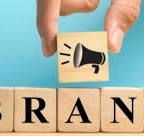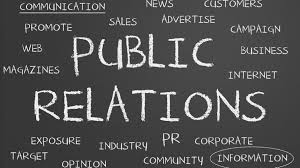Understanding Your Target Market: Key to Success
In today’s competitive business landscape, identifying and understanding your target market is crucial for success. Your target market consists of the specific group of individuals or businesses that are most likely to be interested in your products or services. By gaining a deep understanding of this group, you can tailor your marketing efforts and develop strategies that resonate with them, ultimately driving growth and profitability.
One of the first steps in defining your target market is conducting thorough market research. This involves gathering data and insights about demographics, psychographics, buying behavior, and preferences of potential customers. Demographics include factors such as age, gender, income level, occupation, and location. Psychographics delve into customers’ lifestyles, values, interests, and attitudes. Understanding these aspects helps you create targeted messages that connect with your audience on a deeper level.
Segmentation is another key aspect of identifying your target market. By dividing the larger market into smaller groups based on shared characteristics or needs, you can better tailor your marketing efforts to each segment. For example, if you offer a range of skincare products, you may have different segments for teenagers dealing with acne issues versus middle-aged individuals concerned about aging skin.
Once you have identified your target market segments, it’s essential to create buyer personas – fictional representations of your ideal customers within each segment. These personas help humanize your audience and guide your marketing strategies by giving you insights into their motivations, challenges, goals, and preferred communication channels.
Understanding the needs and pain points of your target market allows you to position your products or services as solutions that address their specific problems or desires. By highlighting the unique benefits that resonate with them most effectively through targeted messaging and positioning strategies, you can differentiate yourself from competitors.
Moreover, knowing your target market enables you to choose the most appropriate marketing channels to reach them effectively. For example, if your target audience consists primarily of young professionals who are active on social media, investing in digital marketing campaigns and social media advertising might yield better results than traditional print advertisements.
Regularly reviewing and refining your understanding of your target market is essential, as consumer preferences and behaviours can change over time. Stay updated with industry trends, conduct customer surveys, and engage with your audience through social media to gather feedback. This ongoing research will help you adapt your marketing strategies to meet evolving customer needs and stay ahead of the competition.
In conclusion, identifying and understanding your target market is a fundamental step towards business success. By conducting thorough market research, segmenting your audience, creating buyer personas, and tailoring your marketing efforts accordingly, you can effectively connect with potential customers and build long-lasting relationships. Remember that successful businesses continuously monitor their target market to stay relevant in an ever-changing marketplace.
Unlocking Business Success: 5 Advantages of Target Markets
- Target markets allow businesses to focus their marketing efforts and resources on the most profitable segments of potential customers.
- Businesses can use data from target markets to develop more effective marketing campaigns that are tailored to the needs and preferences of specific consumers.
- Target markets can help businesses identify new opportunities for growth and expansion, as well as identify potential new customer bases for products or services.
- By targeting audiences with relevant messaging, businesses can increase their reach and maximize ROI on advertising spend.
- Targeting specific audiences allows businesses to build relationships with customers who are more likely to become loyal brand advocates over time, resulting in long-term customer loyalty and increased revenue streams for the business.
Challenges in Target Market Identification and Segmentation: A Comprehensive Overview
- Target markets can be difficult to identify and segment accurately.
- It can be expensive to research, analyse and target a specific market.
- It can be hard to capture the attention of a target market due to saturation in the marketplace.
- There is a risk of alienating potential customers who are not part of the target market if messaging is too narrowly focused.
Target markets allow businesses to focus their marketing efforts and resources on the most profitable segments of potential customers.
Target Markets: Focusing on Profitability
In the world of business, where resources and budgets are often limited, it is crucial to maximize the impact of marketing efforts. This is where target markets come into play. By identifying and focusing on the most profitable segments of potential customers, businesses can optimize their marketing strategies and allocate resources effectively.
One significant advantage of target markets is the ability to concentrate efforts on specific customer groups that are more likely to generate higher returns. Rather than taking a scattered approach and trying to appeal to a broad audience, businesses can narrow their focus and tailor their marketing messages to resonate with the needs and preferences of these profitable segments.
By understanding the characteristics, behaviours, and preferences of their target market, businesses can create targeted marketing campaigns that deliver relevant messages. This not only increases the chances of capturing the attention of potential customers but also enhances the likelihood of converting them into loyal buyers.
Moreover, targeting specific segments allows businesses to allocate their resources more efficiently. Instead of spreading themselves thin by trying to reach everyone, they can concentrate their efforts on channels that are most effective in reaching their target market. This saves both time and money, as resources can be directed towards tactics that yield better results.
Another advantage is that targeting profitable segments enables businesses to differentiate themselves from competitors effectively. By understanding what sets their target market apart from others, businesses can position themselves as unique solutions that cater specifically to those needs. This differentiation helps build brand loyalty and creates a competitive edge in the marketplace.
Furthermore, focusing on profitable segments allows businesses to gather valuable data and insights about their customers. By closely monitoring customer behaviour within these targeted groups, businesses can refine their products or services based on feedback received. This continuous improvement process helps maintain customer satisfaction levels while driving growth within those lucrative segments.
In conclusion, target markets offer numerous benefits for businesses seeking profitability. By concentrating marketing efforts on specific customer groups that are more likely to generate higher returns, companies can optimize their strategies and allocate resources wisely. Targeting profitable segments allows for tailored marketing messages, efficient resource allocation, effective differentiation, and valuable customer insights. With the right approach, businesses can achieve greater success by focusing on those who are most likely to contribute to their bottom line.
Businesses can use data from target markets to develop more effective marketing campaigns that are tailored to the needs and preferences of specific consumers.
Businesses Can Unlock Success with Target Market Data
In the digital age, data is king. And when it comes to understanding your target market, data can be a game-changer for businesses. By harnessing the power of data from target markets, companies can develop more effective marketing campaigns that are tailored to the needs and preferences of specific consumers.
Gone are the days of generic one-size-fits-all marketing strategies. Today, consumers expect personalized experiences that resonate with their unique interests and desires. By digging into target market data, businesses gain valuable insights into consumer behaviour, enabling them to create targeted messages and campaigns that speak directly to their audience.
One of the key benefits of using target market data is its ability to uncover consumer trends and patterns. By analysing demographic information, purchasing habits, online behaviour, and other relevant data points, businesses can identify common characteristics among their target audience. This allows them to segment their market effectively and create highly targeted marketing campaigns.
Tailoring marketing efforts based on target market data not only increases the chances of reaching the right audience but also enhances customer engagement. When customers feel understood and valued, they are more likely to respond positively to marketing messages and become loyal advocates for a brand.
Additionally, target market data helps businesses optimize their marketing spend by focusing resources on channels that yield the highest return on investment. By understanding where their audience spends time online or what media they consume most frequently, companies can allocate their budget strategically to reach customers in the most cost-effective way possible.
Moreover, leveraging target market data enables businesses to adapt quickly to changing consumer preferences. As trends evolve and new opportunities arise, having access to up-to-date information about your target market allows you to adjust your strategies accordingly. This agility ensures that your marketing efforts remain relevant and effective in a dynamic marketplace.
It’s worth noting that obtaining accurate and reliable target market data requires proper research methods and tools. Surveys, focus groups, customer feedback, and data analytics are just a few examples of the methods businesses can employ to gather valuable insights. Partnering with market research firms or investing in data analysis tools can also help streamline the process and ensure the data collected is robust and actionable.
In conclusion, businesses that leverage target market data gain a competitive edge in today’s crowded marketplace. By using this data to develop more effective marketing campaigns tailored to the needs and preferences of specific consumers, companies can enhance customer engagement, optimize their marketing spend, and stay ahead of the curve. So, unlock the power of target market data and watch your business thrive in the age of personalization.
Target markets can help businesses identify new opportunities for growth and expansion, as well as identify potential new customer bases for products or services.
Target markets can be a valuable tool for businesses, offering numerous benefits that contribute to their growth and expansion. One significant advantage is the ability to identify new opportunities and tap into untapped customer bases.
By clearly defining your target market, you gain insights into specific customer needs, preferences, and behaviours. This knowledge allows you to identify gaps in the market where your products or services can meet unmet demands. It opens doors to innovation and the development of new offerings that cater specifically to these identified needs.
Understanding your target market also enables you to expand your customer base. By identifying potential new segments or niches within your target market, you can tailor your marketing efforts towards these groups. This targeted approach increases the likelihood of attracting new customers who may not have been previously aware of or interested in your products or services.
Expanding into new customer bases not only increases revenue potential but also helps diversify your business. Relying on a single customer base can be risky, as changes in their preferences or economic conditions could significantly impact your business. By identifying and targeting new customer segments within your broader target market, you reduce reliance on a single group and create a more stable foundation for long-term growth.
In addition, exploring new opportunities for growth and expansion through target markets allows businesses to stay ahead of the competition. As industries evolve and consumer preferences change, it is essential to adapt and innovate continuously. Target markets provide valuable insights into emerging trends, allowing businesses to proactively adjust their strategies and offerings accordingly.
Ultimately, by leveraging target markets effectively, businesses can identify untapped opportunities for growth and expansion. Whether it’s developing new products or services tailored to specific needs or targeting previously unexplored customer bases, understanding your target market opens doors to exciting possibilities. Embracing these opportunities can lead to increased revenue, enhanced brand recognition, and a stronger position in the marketplace.
By targeting audiences with relevant messaging, businesses can increase their reach and maximize ROI on advertising spend.
By targeting audiences with relevant messaging, businesses can increase their reach and maximize ROI on advertising spend. One of the key advantages of identifying and understanding your target market is the ability to deliver tailored messages that resonate with your audience.
When you have a clear understanding of who your target market is, you can create marketing campaigns that specifically address their needs, preferences, and pain points. By crafting messages that speak directly to their interests and concerns, you can capture their attention and engage them more effectively.
This targeted approach allows businesses to cut through the noise and clutter of generic advertising. Instead of casting a wide net and hoping for the best, businesses can focus their efforts on reaching the specific individuals or businesses most likely to be interested in their products or services.
The result is increased reach and impact. By honing in on your target market, you can allocate your advertising spend more efficiently. Rather than wasting resources on reaching uninterested or irrelevant audiences, you can invest in channels and strategies that are more likely to generate positive results.
Moreover, targeting audiences with relevant messaging helps build brand loyalty and trust. When customers feel understood and valued by a business, they are more likely to develop a connection with the brand. By consistently delivering messages that resonate with their needs and aspirations, businesses can cultivate long-term relationships with their target market.
Additionally, by targeting audiences with relevant messaging, businesses can optimize their return on investment (ROI). By focusing on reaching individuals who are genuinely interested in what they have to offer, businesses increase the likelihood of converting leads into customers. This leads to improved sales figures and revenue growth.
In conclusion, targeting audiences with relevant messaging is a powerful strategy for businesses looking to maximize their reach and optimize ROI on advertising spend. By understanding your target market’s needs and crafting tailored messages that address them directly, you can capture attention, build loyalty, and drive conversions. This approach allows businesses to make the most efficient use of their resources while achieving tangible results in their marketing efforts.
Targeting specific audiences allows businesses to build relationships with customers who are more likely to become loyal brand advocates over time, resulting in long-term customer loyalty and increased revenue streams for the business.
When businesses focus their marketing efforts on a specific target market, they can tailor their messaging and offerings to resonate with that audience. By understanding the unique needs, preferences, and pain points of their target customers, businesses can create personalised experiences that truly connect with them.
By building these strong connections with their target audience, businesses can foster loyalty among their customers. When customers feel understood and valued by a brand, they are more likely to continue purchasing from that brand over time. This leads to repeat business and increased customer lifetime value.
Not only do loyal customers continue to support a business through repeat purchases, but they also become brand advocates. They spread positive word-of-mouth about the brand, recommend it to friends and family, and even defend it against competitors. This organic promotion from loyal customers can be incredibly valuable for businesses as it helps attract new customers without significant marketing costs.
Furthermore, loyal customers often spend more money on a brand’s products or services compared to new or occasional customers. They trust the brand and are willing to invest in its offerings because of the relationship they have developed over time. This increased spending contributes directly to the business’s revenue streams.
In summary, targeting specific audiences allows businesses to cultivate relationships with customers who are more likely to become loyal brand advocates. These loyal customers not only continue purchasing from the business but also promote it organically through positive word-of-mouth. Their increased spending contributes significantly to the business’s revenue streams over time. By focusing on building long-term customer loyalty through targeted marketing efforts, businesses can enjoy sustained growth and success in the marketplace.
Target markets can be difficult to identify and segment accurately.
The Challenge of Identifying and Segmenting Target Markets
While identifying and segmenting target markets is a crucial aspect of successful marketing, it can also present challenges, particularly when it comes to accuracy. Businesses often find it difficult to pinpoint their target markets with complete precision, leading to potential inefficiencies in their marketing strategies.
One of the primary hurdles in identifying a target market accurately is the ever-evolving nature of consumer preferences and behaviours. As society changes, so do the needs and desires of consumers. What may have been relevant yesterday may not hold true today. This dynamic nature makes it challenging for businesses to keep up and accurately segment their target markets. It requires continuous market research and analysis to stay updated on shifting trends and customer preferences.
Another obstacle lies in collecting accurate data for segmentation purposes. While there are various sources available for gathering demographic information, psychographic insights can be more elusive. Understanding customers’ values, interests, attitudes, and motivations requires more in-depth research, such as surveys or focus groups. Obtaining this information can be time-consuming and costly for businesses, especially smaller ones with limited resources.
Furthermore, defining target markets too broadly or too narrowly can also pose difficulties. If a business defines its target market too broadly, its marketing efforts may lack focus and fail to resonate with any particular group. On the other hand, if the target market is defined too narrowly, it may limit potential opportunities by excluding individuals who could potentially be interested in the product or service.
Additionally, businesses operating in niche industries or offering highly specialized products may face challenges when segmenting their target markets accurately. The pool of potential customers might be smaller or harder to identify due to limited awareness or specific industry knowledge required.
Overcoming these challenges requires a combination of thorough research, data analysis, and adaptability. Businesses must invest in market research efforts that go beyond basic demographics to gain a deeper understanding of their customers’ motivations and behaviours. Regularly reviewing and updating target market segments based on new insights is crucial to stay relevant and effective in marketing strategies.
Collaboration with marketing professionals or agencies can also be beneficial. Their expertise and experience in market research and segmentation can provide valuable guidance, helping businesses navigate the complexities of identifying and segmenting target markets accurately.
In conclusion, while it may be challenging to identify and segment target markets accurately, it is a necessary process for successful marketing. Businesses must recognize the dynamic nature of consumer preferences, invest in thorough research, and adapt their strategies accordingly. By overcoming these challenges, businesses can better connect with their intended audience, increase the effectiveness of their marketing efforts, and ultimately drive growth and profitability.
It can be expensive to research, analyse and target a specific market.
The Cost Conundrum: Target Market Research and Analysis
While identifying and targeting a specific market is crucial for business success, it’s important to acknowledge that this process can be expensive. Researching, analyzing, and targeting a particular market requires financial resources and time investment. However, understanding the potential costs associated with this endeavour can help businesses make informed decisions and optimize their strategies.
One of the main expenses involved in target market research is conducting thorough market analysis. This typically involves gathering data from various sources, such as surveys, focus groups, and industry reports. Acquiring reliable and comprehensive data often requires financial investment to access specialized research tools or hire external experts.
Furthermore, analyzing the collected data to identify key trends, preferences, and behaviours of the target market requires both time and expertise. Businesses may need to allocate resources towards employing skilled analysts or partnering with market research agencies. These professionals can interpret the data effectively, providing valuable insights that inform strategic decision-making.
Targeting a specific market also entails tailoring marketing efforts to reach the identified audience effectively. This may involve developing personalized messaging, creating targeted advertising campaigns, or utilizing specific marketing channels that resonate with the target market. Such customization often comes at an additional cost compared to generic mass marketing approaches.
Moreover, implementing targeted marketing strategies often involves investing in advertising platforms and technologies that allow businesses to reach their desired audience accurately. These tools may include social media advertising platforms or programmatic advertising solutions that optimize ad placements based on user demographics and interests. While these technologies offer precise targeting capabilities, they can contribute to overall campaign costs.
Despite these potential expenses, it’s important to recognize that investing in target market research can yield significant returns on investment (ROI). By precisely understanding your audience’s needs and preferences, you can develop products or services tailored specifically for them. This targeted approach increases customer satisfaction levels, enhances brand loyalty, and ultimately drives revenue growth.
To mitigate the costs associated with target market research, businesses can explore cost-effective alternatives. For instance, leveraging digital platforms and social media can provide valuable insights into consumer behavior at a relatively low cost. Engaging with customers directly through online surveys or social media interactions can yield valuable data that informs marketing strategies.
Collaborating with other businesses or industry associations can also help share the costs of market research and analysis. Pooling resources and expertise with like-minded partners can provide access to a wider range of data and insights, making it more affordable for all involved parties.
In conclusion, while researching, analyzing, and targeting a specific market can be expensive, it is an essential investment for business growth. By understanding the potential costs involved and exploring cost-effective alternatives, businesses can make informed decisions that optimize their target market strategies. Remember that the long-term benefits of accurately targeting your audience often outweigh the initial expenses incurred in the process.
It can be hard to capture the attention of a target market due to saturation in the marketplace.
Navigating Market Saturation: A Challenge in Targeting Your Audience
In today’s hypercompetitive marketplace, capturing the attention of your target market can be a daunting task. One significant challenge that businesses face is market saturation, where numerous competitors vie for the same audience’s attention. This saturation makes it increasingly difficult to stand out and effectively target your desired customers.
When a market becomes saturated, consumers are bombarded with an overwhelming amount of marketing messages and options. This overload can lead to information fatigue, making it harder for businesses to cut through the noise and capture their target audience’s attention. With so many choices available, consumers may become indecisive or overlook certain brands altogether.
To overcome this challenge, businesses need to adopt innovative strategies that differentiate them from their competitors. It becomes crucial to develop a unique selling proposition (USP) that clearly communicates what sets your products or services apart from others in the market. By highlighting your distinct advantages and addressing pain points that competitors may have missed, you can pique the interest of your target market.
Another effective approach is to focus on niche marketing. Instead of targeting a broad audience, identifying a specific segment within your target market allows you to tailor your offerings more precisely. By understanding the unique needs and preferences of this niche group, you can create targeted marketing campaigns that resonate with them on a deeper level.
In addition to differentiation and niche marketing, leveraging innovative communication channels can help break through the saturation barrier. Traditional advertising methods may not be as effective when competing with numerous other brands vying for attention. Exploring digital marketing strategies such as social media advertising, influencer partnerships, content creation, and search engine optimization (SEO) can help you reach your target audience more directly and engage them in meaningful ways.
Moreover, building strong relationships with existing customers becomes paramount in a saturated market. Satisfied customers who have had positive experiences with your brand are more likely to become brand advocates and spread the word to their networks. Encouraging customer reviews, implementing loyalty programs, and providing exceptional customer service can help create a loyal customer base that supports your business even amidst market saturation.
While market saturation poses a challenge in capturing the attention of your target audience, it is not an insurmountable obstacle. By employing innovative strategies, focusing on differentiation and niche marketing, exploring digital channels, and nurturing customer relationships, businesses can successfully navigate through the noise and establish their presence in even the most saturated markets.
Remember, perseverance and adaptability are key. Continuously monitoring market trends and consumer preferences will allow you to stay ahead of the competition and adjust your strategies accordingly. With a well-defined target market approach and a unique value proposition, you can rise above the saturation to connect with your audience effectively.
There is a risk of alienating potential customers who are not part of the target market if messaging is too narrowly focused.
The Pitfall of Narrowly Focused Messaging: Alienating Potential Customers
While defining a target market and tailoring your messaging to resonate with them is essential, there is a potential downside to consider. The risk lies in alienating potential customers who fall outside of the defined target market if your messaging becomes too narrowly focused.
When businesses concentrate their efforts solely on appealing to their target market, they run the risk of unintentionally excluding or alienating individuals who may still have an interest in their products or services. This exclusion can occur when messaging becomes too specific, using language or imagery that only appeals to a certain subset of consumers.
One of the dangers of narrowly focused messaging is that it limits the reach and potential growth opportunities for a business. By exclusively targeting one specific group, you may miss out on attracting customers who might have been interested in what you offer but were not directly addressed by your marketing efforts.
Additionally, it’s important to recognize that people are not always easily categorized into neat demographic segments. Individuals possess unique preferences, interests, and needs that may transcend traditional market boundaries. By adopting an overly narrow focus, businesses risk overlooking potential customers who do not fit neatly into predefined categories but could still benefit from their products or services.
To avoid this conundrum, businesses should strike a balance between targeted messaging and maintaining inclusivity. It’s crucial to ensure that while addressing the needs and desires of your primary target market, you also leave room for others who may find value in what you offer.
One way to mitigate the risk of alienating potential customers is by adopting a broader marketing approach. Craft messages that speak to the core values and benefits of your products or services rather than relying solely on specific demographics or characteristics. By highlighting universal benefits and addressing common pain points, you can appeal to a wider audience without losing relevance with your primary target market.
Furthermore, regularly reviewing and analyzing customer feedback can provide valuable insights into how well your messaging resonates with different audiences. By actively listening to your customers and adapting your messaging accordingly, you can ensure that you remain inclusive and responsive to the diverse needs of potential customers.
In conclusion, while targeting a specific market is crucial for effective marketing, it’s important to be mindful of the potential drawbacks. The risk of alienating potential customers who fall outside of the target market should not be overlooked. Striking a balance between targeted messaging and inclusivity is key to maximizing growth opportunities and ensuring that your business remains relevant to a wider audience.








